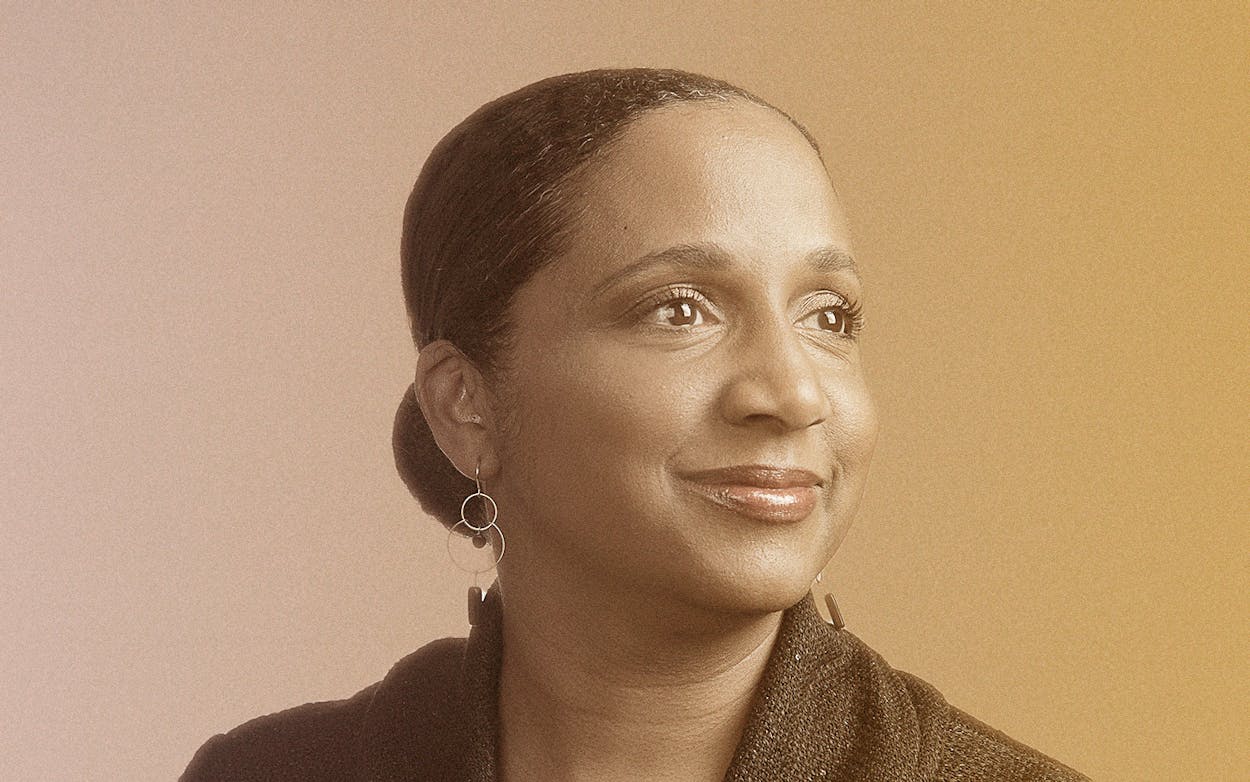Subscribe
When University of Texas at Austin history professor Daina Ramey Berry and her coauthor, Rutgers University history professor Kali Nicole Gross, started outlining what would become this month’s A Black Women’s History of the United States, they knew they didn’t want to declare it a comprehensive or definitive history. But with a subject they say is grossly underrepresented in both popular and academic history books, they knew they had stories from countless underappreciated and previously unheralded figures in history—enslaved women, freedwomen, religious leaders, artists, queer women, activists—that would help underscore black women’s roles in building American society, culture, and politics.
“I know it sounds funny, but I kept coming back to Aretha Franklin and her song,” says Berry, who earned her degrees in African American studies and U.S. history at UCLA and is a specialist on the history of gender and slavery in the United States, as well as black women’s history. “We wanted to respect that they were here, meet them where they were, and allow their stories to tell us something about a particular moment in time … They were trailblazers. And when I think about it from the perspective of an African American woman, I have to consider what it would have been like for me as a young little girl to grow up with a book like this available. Because in all the books that I grew up with in my classrooms, there was nobody that looked like me. So I had to imagine myself in places that I didn’t feel were spaces that were open to me.”
While the book’s timeline moves from early North American exploration through slavery and the civil rights movement all the way to #BlackLivesMatter, Berry says there’s a handful of what she calls “central organizing themes” that are through lines for black womanhood: “travel and migration, violence, activism and resistance, labor and entrepreneurship, criminalization, art and creativity—all while laying claim to their womanhood and sexuality in spite of social, structural, and political limitations.”
“We cover each of those themes and feature women affected by them throughout history,” Berry says. “This is somewhat of a textbook, but it’s also a book of stories, of experiences and of context to larger historical moments that we’re all familiar with—the American Revolution, the Civil War, World Wars I and II. But what does it mean when we write about those same, very familiar events from the perspective of how black women experienced them? Finding that answer was the goal.”
On the podcast, Berry discusses Texas’s role in black women’s history, how understanding black women’s history adds to our larger understanding of American history, and how black women’s history might inform the way we look at the 2020 election.
Three takeaways from the conversation:
1. A Black Women’s History of the United States focuses directly on Texas only periodically, but Berry says Texas’s reputation as an early hotbed of slavery is well earned.
“If you settled in Texas, you got extra land depending on the number of enslaved people you were bringing. And there was an abundance of land. And what people don’t realize about Texas is that we not only grew cotton here, but we also grew sugar. This was a major sugar production region along the rivers. People overlook that there were enslaved people here skilled at sugar production because they had come from plantations in the Caribbean. They already knew how to produce sugar. And that was a major crop for Texas in addition to cotton.”
2. For all the suffering women described in A Black Women’s History of the United States, Berry found just as many stories of inspiration that allow her to remain hopeful.
“One of the things that I’ve had to do as a writer of this history is to look for the spaces of survival and the spaces of joy. If African Americans didn’t find ways to survive and circumvent the system, then we wouldn’t be here. We wouldn’t be 14 percent of this state. So what brings me joy is survival. And there’s also levity and humor in some of these African American women that we write about. But it’s the perseverance that that gives me hope.”
3. When looking at the 2020 campaign, Berry cautions against considering black women a homogeneous group that can be counted on to vote a particular way, though history shows that some element of what they’re looking for might be similar across party lines.
“Black women want to feel heard and respected. And that’s across the board, regardless of what their partisan politics are. I would say that’s consistent. But you have to also consider people’s perspective on their social-economic standing. Some people prioritize their privilege and class and wanting to maintain that space, and others are more concerned about racial inequality and want to do something about that. I think it varies. I think it would be hard to say that there is a bloc. But we know that there were some state elections and some cities where the black female vote was the key turning point. So when black women come together, and if they’re voting as a certain bloc, that can be influential. We’ve seen that. We have numbers to prove that. If we’re looking at it from a bird’s-eye view, I think it’s hard to apply history because partisan politics makes that difficult.”






